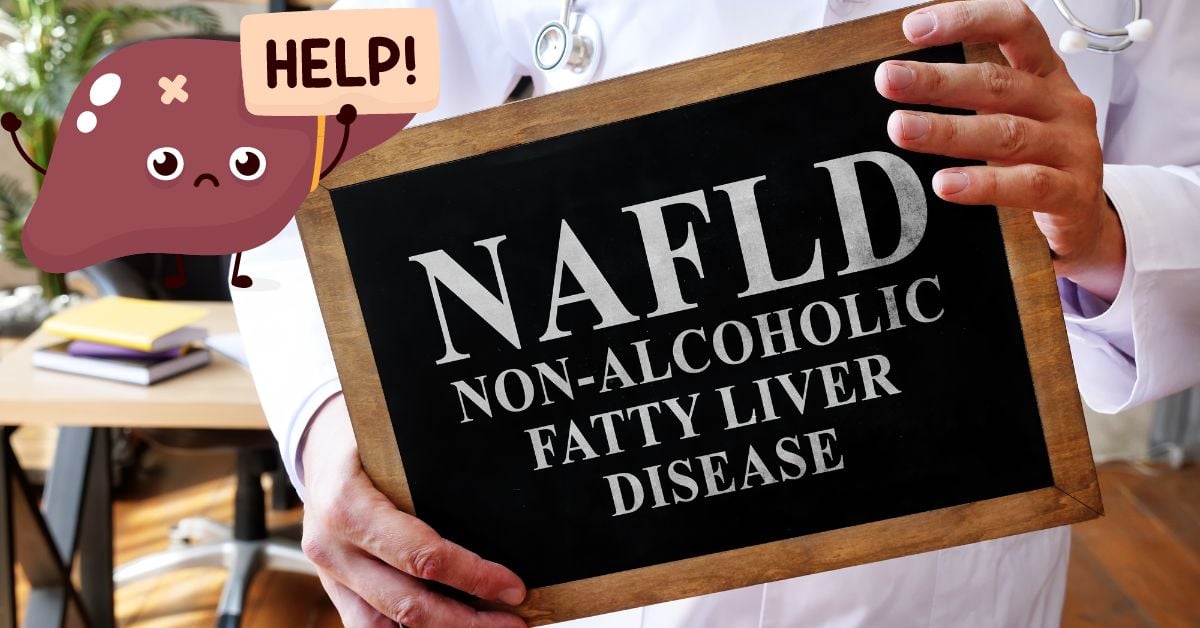Berkman Diabetes Clinical Innovation Grant Awarded to Develop Liver Disease Screening in the Adult Diabetes Clinic

Metabolic dysfunction-associated steatotic liver disease (MASLD), known as non-alcoholic fatty liver disease prior to 2024, includes a range of conditions caused by a build-up of fat in the liver. It is strongly associated with type 2 diabetes (T2D) and obesity. MASLD remains underdiagnosed and undertreated. Many people living with T2D are unaware they have it.
Endocrinologist Madona Azar, MD, in partnership with Hepatologists Deepika Devuni, MD and Anita Krishnarao, MD, was awarded the 2023 Herman G. Berkman Diabetes Clinical Innovation Fund grant to create a program to screen adults with diabetes and prediabetes in the UMass Memorial Diabetes Center of Excellence clinic.
Their project implemented a screening tool called the Fibrosis-4 (Fib-4) Index. It utilizes clinically available data to determine patient risk of liver fibrosis.
“This project will not only raise awareness about MASLD, encourage screening and identify high-risk patients so they can be treated,” said Dr. Azar. “We also want diabetes providers to start thinking of Fib4 as an automatic standard to monitor after the A1c test.”
The online screening tool went live during the Fall of 2023. Diabetes care team providers attended an educational session to launch the project. Data analysis will be reviewed quarterly to monitor progress and will be presented to the care team to reinforce the benefits.
Previous Berkman Fund Recipients
AI Diabetic Retinopathy Screening in Primary Care
This project is implementing an artificial intelligence (AI) diabetic retinopathy screening program in Family Medicine clinics to identify eye disease and improve comprehensive care for people living with diabetes. Recent studies have identified AI-based algorithms as promising tools for the screening and early identification of diabetic retinopathy to help those at-risk. This study, led by optometrist Juan Ding, OD, PhD, is testing the diagnostic accuracy of a hand-held AI-assisted camera to be used by primary care physicians to screen at-risk individuals for retinal changes indicative of diabetic retinopathy.
The GOOD-ER Program
This randomized clinical trial provided continuous glucose monitors (CGM) to people with diabetes who were currently not using one and arrived at the Emergency Room with high or low blood sugar, or other diabetes related complications. The recently completed study, led by endocrinologist Dr. Mark O’Connor and emergency physician Dr. Laurel O'Connor, is analyzing whether CGM successfully keeps people from returning to the ER with diabetes-related issues, compared to the control group who do not wear a device to monitor their blood sugars.
Improving Inpatient Blood Glucose Management
This project is implementing a carbohydrate counting system for hospitalized inpatients with diabetes throughout the UMass Memorial Health system. The study led by endocrinologists Dr. Leslie Domalik and Dr. Asem Ali, will evaluate if adopting a flexible meal dosing option based on carb counting, improves the outcomes of hospitalized patients with diabetes. The program will coordinate appropriate timing of blood glucose testing, insulin dosing, and administration of rapid-acting mealtime insulin. It will also ensure carbohydrate counts are listed for all food served to hospitalized patients, and better coordinate insulin delivery with meal delivery.
Identifying Diabetes Patients and Leveraging Underutilized Services to improve Care’ (ID PLUS Care)
This project focused on a multidisciplinary, collaborative approach to improve care access, quality, and management for at-risk patients with diabetes. They monitored Electronic Health Record data to identify UMass Medicare Accountable Care Organization patients at risk for negative outcomes and proactively contacts patients to nudge them towards recommended services. It led to Dr. Daniel Amante receiving a three-year KL2 Mentored Career Development Training grant to develop a Diabetes Mellitus program using Behavioral economics to Optimize Outreach and Self-management support with Technology (DM-BOOST).
